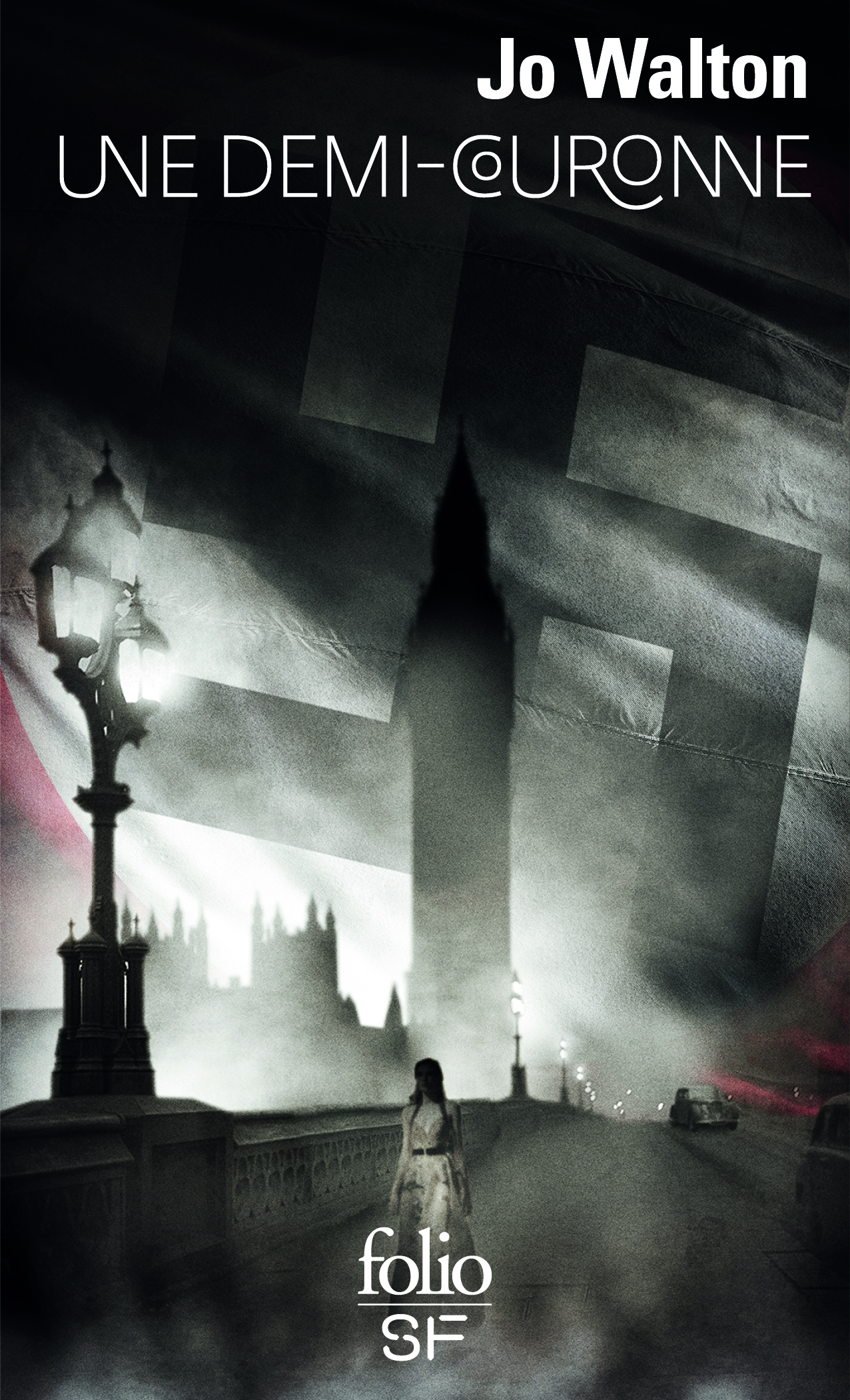Theatre is something it’s only possible to have in civilization. There are barbarian poems and stories and carvings and paintings, but only in settled communities have people come together to co-operate in this strangest of arts. There is a script, which is the thread that lasts. There is direction, there are actors, there is an audience, there are props and lights and clothes and music, the thread is woven into wide bright tapestry and then, as it is woven, burned up, destroyed even as it is realized. There is no reference copy. A script is a thin dark thread to burn so brightly, but that’s the thing with theatre, whether at the Dionysia in Athens or last night in Montreal, only the actors and the audience saw it, and when it’s over, it’s over, there’s only the script and the memories.
Being a theatre critic must be the worst profession in the world, bearing the weight of knowing that what you say about this production will be the closest any future person can come to it, and that what you say must of its nature be inadequate.
I think I mentioned that Gravy Bath Productions are amazing. These two productions, the “New Classical Theatre Festival” (Rysmiel says it’s very Montreal to call two plays a festival) playing alternate nights at the Saidye B, couldn’t be more different. They’re both terrific, but in very different ways.
The Portrait of Dorian Gray was a production full of nouns, the stage was cluttered with things, it slowly uncluttered as the performance went on, but there were little tables, sofas, flower arrangements, tea-cups, little cakes, an easel, all the impedimenta of Victiorian life. The play was the words, the acting too, but mostly the words and the pauses between the words. When, as we had to, we walked across the stage to and from our seats, it felt like walking through a drawing room, carefully avoiding the furniture. Wilde or Shaw would have recognised it, even if there was no fourth wall. (“Who’s Shaw?” asked Zorinth. “An Anglo-Irish playwright.”)
Coriolanus in absolute contrast was kinetic, full of movement and images. The boards were bare, props were spare, sticks, lengths of cloth, rolling spools, everything used and re-used in different ways.
Thinking about the contrast in theatricality leads me to think of films. Films, delightfully, are the same every time, can be seen in Madison and Manchester as well as Montreal. Film is an outgrowth of theatre, but it very much isn’t the same thing, because film forces your focus, it directs your attention, with close-ups and panning and all the techniques it fixes attention in one direction. But beyond that, because it is close up and because it is film it has its own conventions of realism. Theatre can be iconic in a way that isn’t possible for film, which has its own ways. It can do so much in unreal ways to make things seem perfect, with effects, that it can’t give you ten people with stockings over their heads and quarterstaffs in their hands, balletically representing a battle. It can show you dead bodies and staring eyes, but it can’t have six pairs of people take empty clothes out of suitcases, cradle them, lay them out carefully in such a way as to show the individuality of each set, cover them all in sheets to show how they are united in the sameness of death, and set up the suitcases on end at the head of each to be tombstones. It would show you the bodies to a certain kind of music, and not to a wild Gregorian chant, prefiguring the use of a Gregorian chant version of a Metallica song later…
A film of Dorian would have been different, both more and less representative and realistic, but it could have been recognisably the same thing. Nobody could film this production of Coriolanus without it being a film of a play. Yet the influence goes both ways, and the theatricality of some of it owes something to film, to slow motion, to the battle at the beginning of Gladiator even, Zorinth says, to The Matrix. When the spears fly to kill Martius at the end, the light changes, everyone freezes except the man walking with each spear in turn, then sound and motion begins again as each spear hits.
All the same, last night’s Coriolanus, in the long thin space with 72 seats to left and right, was theatre that Nikeratos and Euripides would have understood.
Usually, coming out of Shakespeare, I am drunk on words, this time I was drunk on motion, on faces, on ways of using sticks and swathes of cloth, on the starkness of the tragedy.
The play began in mime, with a tramp waking up in a dustbin, getting up, finding a suitcase, and taking from it a set of hats and a pile of little toy soldiers. The whole play in some sense concerned the tramp’s imagination of the hats and the toys. The actors came on in silence, in black, stocking masked, and put on the hats and the roles. I initially thought of the tramp as a homeless person — that’s how he was dressed — and it wasn’t until Zorinth used the word “tramp” in the first interval that I thought about the iconic significance of that, through Chaplin and Beckett. (“Who’s Beckett?” Zorinth again. “A Franco-Irish playwright.”)
I can’t describe it, though I feel I should, the tribunes conspiring, the people agitating, Martius striding through disdainfully, bred to the wars, and his awful mother gloating about his wounds, Aufidius bending over the spool to move the toy soldiers, the tramp wandering alternately delighted and horrified, the long red ribbon that was blood winding through the battle becoming the triumphal cloak, Aufidius and Martius banging their staves at each other because war was the language they had in common and the only safe communication they could have.
There were, as of last night, seats still available for Sunday afternoon’s additional performance of Coriolanus. (There were none at all for any of the remaining performances of Dorian, we checked.) We’re intending to go again. If you want to go and need somewhere to stay in Montreal, let me know.
After Sunday it will be gone forever, as Shakespeare’s own production is gone, and all the productions between then and now.
I’m never going to write any more plays.



